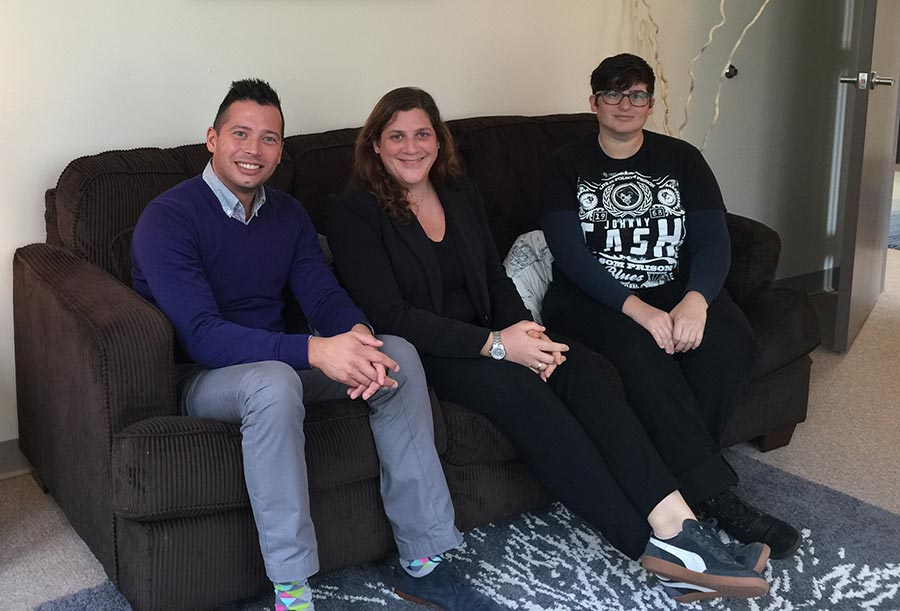Therapists at Walnut Psychotherapy Center are more likely to diagnose society before their clients, said Danna Bodenheimer, founder and director of the new Center City practice.
“We understand that the oppression of transphobia and homophobia can manifest itself in something that looks like mental illness, but is in fact somebody trying to survive being in the world,” she said.
Bodenheimer opened the doors of her psychodynamic practice at 15th and Walnut streets in October. She said the practice is not exclusively a queer space, “but it’s where our highest level of competency lies.”
Seven practitioners work in the office, serving everyone from people dealing with substance abuse or chronic illnesses to groups of kids who are transgender or dealing with other identity conflicts.
“A lot of it has to do with precision around language and really understanding how language can liberate or oppress a community,” Bodenheimer said. “We’re really up-to-date on how the community thinks of and talks about itself.”
Bodenheimer is a lesbian and her wife works as a nurse practitioner, providing OB-GYN services to oftentimes queer-identified Latinas, she said. She noted she and her wife saw an absence in affordable wellness options for queer people in Philadelphia.
Walnut Psychotherapy created a therapy scholarship program, meaning that people who make less than $27,000 a year will pay no more than $25 per session. Twenty-four scholarship slots are currently filled. Bodenheimer and her staff are working on ways to move people through the waiting list. She anticipates hiring an intern from a local college in January to help manage the therapy scholarships.
Anyone who makes more than $27,000 goes on a sliding scale for payment, which starts at $50 or higher per session. The fee is based on a person’s income.
Sessions are not limited to one-hour increments. Bodenheimer said clients and their therapists figure out what amount of time is appropriate each session.
“Therapy is open-ended,” said Michael Tyler Ramos, a therapist who also speaks Spanish. He deals most frequently with substance abuse at Walnut Psychotherapy and is trained in eye-movement desensitization and reprocessing therapy, called EMDR, which is used to treat trauma like sexual, physical or emotional abuse.
“Everyone is different,” Ramos said. “It goes back to looking at earlier relationships and really focusing on what a person’s resiliency and coping skills are. Even though most people have endured some level of stress, they’re still functioning to some capacity. I personally look at past relationships and how they mirror existing relationships. I really explore that.”
Bodenheimer noted that’s a founding principle of psychodynamic therapy: the idea that the past makes itself known in the present. She said treatment lies in providing clients with at least one positive attachment when they come to therapy. She also said there’s no pressure to “cure” people.
“Nobody stops a yoga practice because they’ve learned everything about yoga,” Bodenheimer said. “I think of therapy as exactly the same as that. If it’s a practice for you and that feels important to maintaining your functionality, then you should keep doing it.”
Sarah Pulver, another practitioner at Walnut Psychotherapy, thinks that focus helps her deal with patients who have chronic illnesses and adults who have experienced complex childhood trauma.
“To be doing long-term, very supportive caring and complex work with people, that was what really drew me here,” she said.
For more information, visit www.walnutpsychotherapycenter.com.

